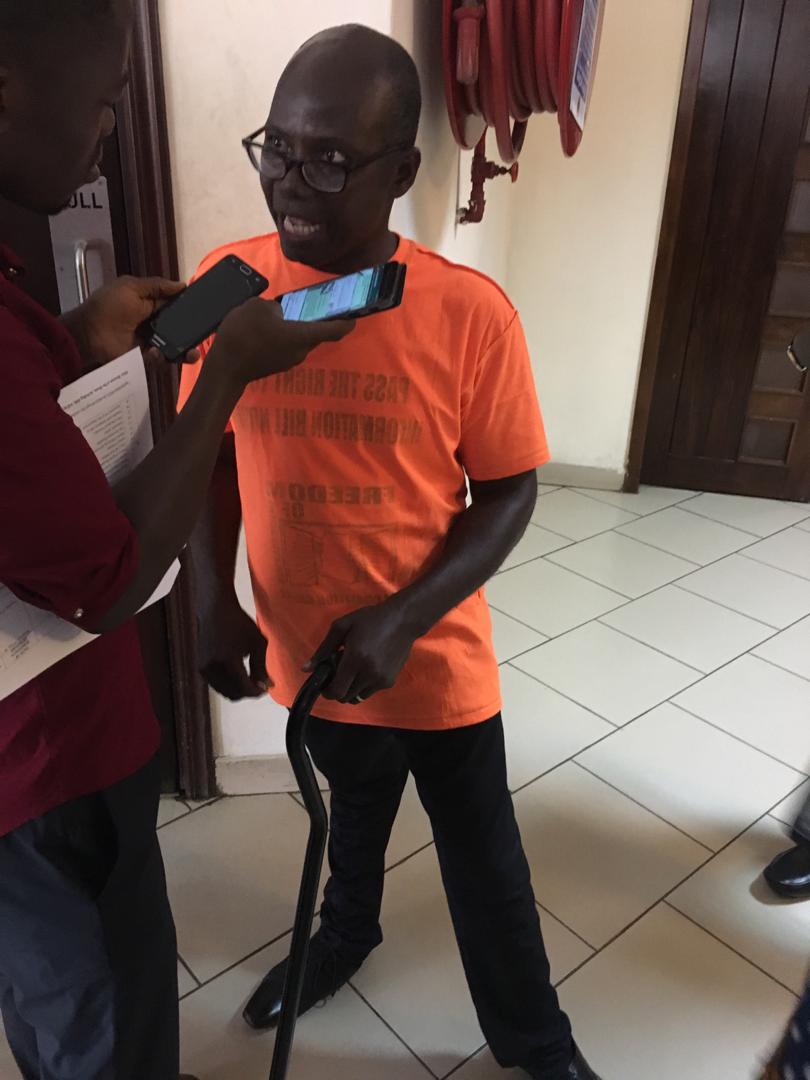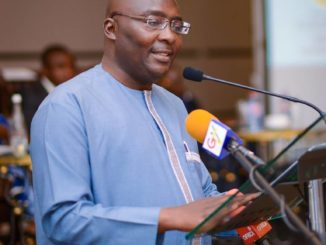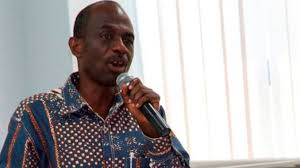A physically-challenged man was denied entry into the chamber of Parliament by security on Friday because he cannot stand to acknowledge the Speaker of the House.
“Their reason is that they were asked not to allow anybody who cannot stand when the Speaker is coming or passing or is rising,” the man who was discriminated against, Alex Tetteh, told Citi News.
It is, however, unclear whether this decision was sanctioned by the leadership of the House.
“They said that an incident happened yesterday [Thursday], where one person could not stand and they saw that he was a person with disability and for that matter, they think that they should prevent anybody who cannot stand [from going in].”
Following this, he has called on the Speaker of Parliament, Professor Mike Oquaye, to intervene.
“I feel sad. I feel that my rights as a citizen to observe Parliament have been denied and I think that the Speaker must address this.”
“The fact that I cannot stand, does not mean that I disrespect any laws or I disrespect any authorities. It is because of my disabilities. It is no fault of mine to become disabled,” he remarked.
Mr. Tetteh was at Parliament house as part of the Red Friday movement by the RTI Coalition to put pressure on MPs to pass the Right to Information Bill.

Before this incident, the leadership of Parliament, particularly the Minority Leader, had to intervene so that other members of the RTI Coalition and other Civil Society Organisations could enter Parliament’s gallery despite an earlier agreement.
They were denied entry because they were in the coalition’s red branded t-shirts.
There is a sense of general disregard for Persons with Disabilities (PWDs) in Ghana with many physically-challenged people and advocacy groups expressing concerns about the treatment of PWDs.
While disbursements to the PWDs have often delayed, arguments have been made that certain establishments and social policies are not disability-friendly.
11 years of enacting the Disability Act
Ghana’s Disability Law, 2006 (Act 715) was passed by Parliament in 2006, aimed at ending the discrimination that faces people with disabilities but the ten-year moratorium given by the Act for old buildings to be renovated to disability-friendly status has indeed not been met.
It is worth noting that about ten percent of Ghana’s population are Persons with Disability (PWD). Although their rights are guaranteed both by Ghana’s Constitution and by International Conventions, in reality these provisions have offered them very little actual protection against discrimination.
People with disabilities in Ghana are often regarded as unproductive and incapable of contributing in a positive way to society. Instead of being viewed as assets, they are rather seen as constituting an economic burden on the family and the society at large, which leaves them in a vicious cycle of poverty.
–
Citifmonline



